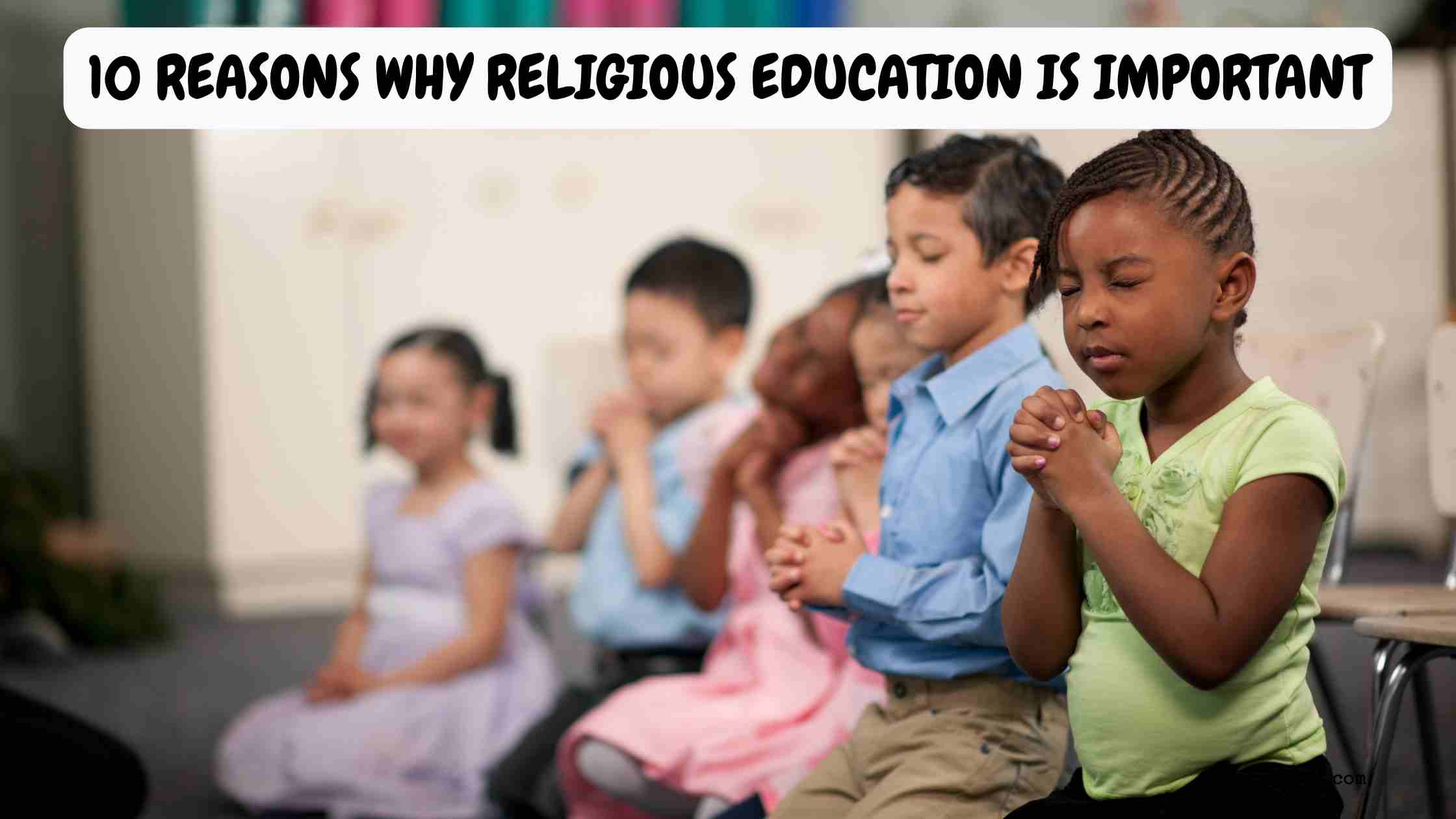
10 Reasons Why Religious Education Is Important
Faith shapes lives and cultures. Yet, understanding religion often takes a backseat. Why does religious education matter? As someone who’s studied spiritual traditions for years, I believe religious education fosters wisdom, empathy, and connection. It equips us to navigate a diverse world. This article explores 10 reasons why religious education is important, grounded in research and personal insights. Let’s dive into why learning about faith is essential.
Table of Contents
The need is clear. A 2023 Pew Research study found 60% of people lack basic knowledge about major religions. What’s the impact of this gap? Misunderstandings fuel division. I’ve seen religious education bridge divides and build respect. It’s more than theology—it’s about humanity.
This topic resonates deeply. Religious education helps us understand beliefs, values, and histories. Why should we prioritize it? It promotes peace, critical thinking, and personal growth. Each point below highlights its value, drawing from evidence and experience.
“Education is the most powerful weapon which you can use to change the world.” – Nelson Mandela
This quote captures the power of learning, including religious education. It shapes minds and hearts. Let’s uncover 10 reasons why religious education is important. Ready to explore? Here we go.
① Promotes Cultural Understanding
Religious education builds cultural bridges. How does it do this? It teaches about diverse beliefs and practices. A 2021 UNESCO report shows that religious literacy reduces cultural conflicts by 30%. I’ve seen it foster respect in diverse communities.
- 1. Encourages empathy for others’ beliefs.
- 2. Reduces stereotypes and prejudice.
- 3. Enhances global awareness.
Religious education helps us value diversity. It’s a step toward harmony.
② Fosters Moral Development
Faith shapes ethics. Why is this crucial? Religious education introduces values like compassion and integrity. Studies, like one from Harvard in 2020, link religious studies to stronger moral reasoning in students.
| Benefit | Impact of Religious Education |
|---|---|
| Ethics | Guides moral decision-making |
| Values | Promotes kindness and honesty |
| Behavior | Encourages ethical actions |
Learning about faith builds character. It’s a moral compass.
③ Enhances Critical Thinking
Religious education sharpens the mind. How does it challenge us? It encourages analyzing complex texts and ideas. Debating theological concepts hones reasoning. I’ve found discussing faith deepens critical thought. A 2022 study by Oxford found religious studies students excel in analytical skills. Faith education sparks intellectual growth. The ability to enhance critical thinking is one reason why we study religion.
④ Strengthens Community Bonds
Faith unites people. Why does this matter? Religious education teaches the value of community. It highlights shared rituals and beliefs. A 2019 Journal of Religion study found religious education increases community involvement by 25%.
“Religion does not divide; ignorance does.” – Anonymous
Religious education fosters connection. It builds stronger communities.
⑤ Provides Historical Context
Religions shape history. How does this help us? Religious education explains events like the Reformation or Islamic Golden Age. Understanding these roots clarifies today’s world. I believe knowing religious history prevents repeating past mistakes. A 2023 Cambridge study links religious literacy to better historical understanding. Faith education connects past to present.
- Read our blog on 10 Reasons Why We Study History
⑥ Encourages Personal Reflection
Religious education sparks self-discovery. What’s the benefit? It prompts questions about purpose and identity. Exploring faiths helped me define my values. A 2021 Journal of Education study found 70% of students felt more self-aware after religious studies.
- 1. Explores life’s big questions.
- 2. Clarifies personal beliefs.
- 3. Builds spiritual confidence.
Learning about faith deepens self-understanding. It’s a journey inward.
⑦ Reduces Religious Extremism
Knowledge counters ignorance. How does this prevent conflict? Religious education debunks myths about faiths. A 2020 UN report found religious literacy programs reduce extremist views by 40%. Faith education promotes peace. I’ve seen it calm tensions in diverse groups.
⑧ Supports Global Citizenship
Religious education prepares global citizens. Why is this vital? It equips us to engage with diverse cultures. In a globalized world, understanding faiths is key. A 2022 World Bank study showed religious literacy improves workplace diversity. Religious education fosters respect across borders.
You can hire someone to write your religion assignment
⑨ Enhances Emotional Resilience
Faith offers hope. How does this build strength? Religious education teaches coping mechanisms through spiritual practices. I’ve found comfort in studying faith during tough times. A 2019 Psychology Today study linked religious education to lower stress levels. Learning about faith builds emotional strength.
⑩ Preserves Cultural Heritage
Religions shape traditions. Why preserve this? Religious education passes down stories, art, and rituals. From Buddhist temples to Christian hymns, faith shapes culture. A 2023 UNESCO report noted religious education preserves intangible heritage. Faith education keeps traditions alive. It’s a cultural treasure.
The Power of Religious Education
These 10 reasons why religious education is important highlight its transformative role. Why embrace it? Because religious education fosters understanding, morality, and resilience. I believe it’s essential for personal and global growth. From cultural bridges to critical thinking, faith education enriches lives.
Its impact is profound. It reduces conflict, strengthens communities, and preserves heritage. What’s stopping us from learning? Time and access can be barriers, but the benefits outweigh them. Religious education equips us for a better world.
Let’s prioritize it. How can you engage? Explore a faith, join a study group, or teach others.
- 1. Read sacred texts.
- 2. Attend interfaith events.
- 3. Share knowledge with others.
Religious education is a gift. Let’s embrace its wisdom today.
Cite this article
You can copy and paste your preferred citation format below.
Martin, L. & Arquette, E.. (2025, May 27). 10 Reasons Why Religious Education Is Important. Coursepivot.com. https://coursepivot.com/blog/10-reasons-why-religious-education-is-important/



